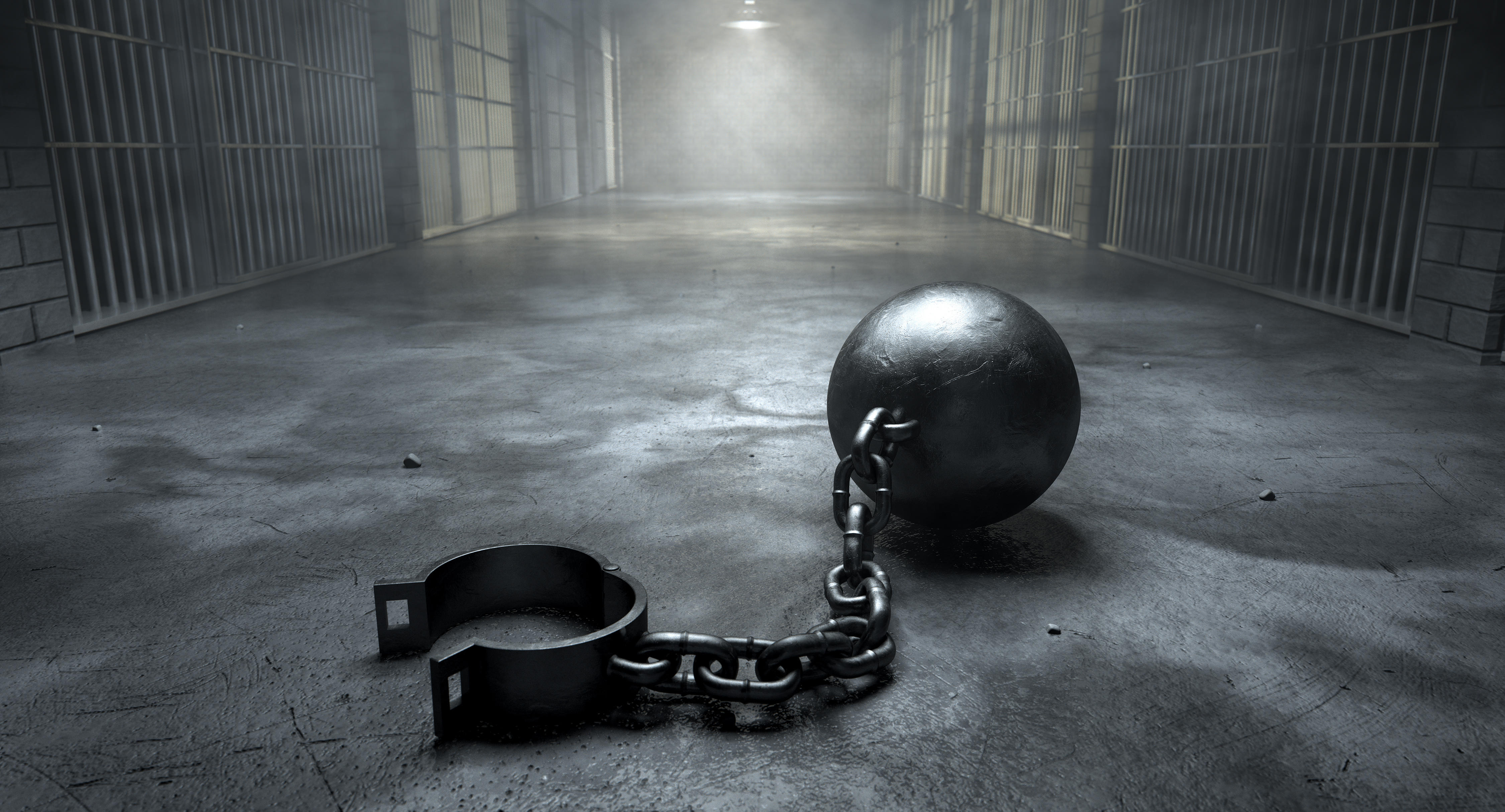Don't look now, but American judges are attacking debtor's prison
Finally some good news


A free daily email with the biggest news stories of the day – and the best features from TheWeek.com
You are now subscribed
Your newsletter sign-up was successful
The American jail system is an abomination. Over three-fifths of people who are in jail (as opposed to prison) have not been convicted of a crime. And of those, a large fraction are there because they cannot afford bail. That is a gross violation of the Fifth Amendment, which states that no person can "be deprived of life, liberty, or property, without due process of law."
But mass incarceration of people simply because they are poor is also the natural outgrowth of a jail system that is chronically underfunded, locally administered, and concerned more with warehousing troublemakers than with constitutional due process.
However, things have started to change — most recently by something called a model bench card for justices. It says that nobody can be jailed for nonpayment of fines without a hearing establishing that they had the money and deliberately refused to pay, or that nonpayment was not the defendant's fault and alternatives to incarceration were inadequate.
The Week
Escape your echo chamber. Get the facts behind the news, plus analysis from multiple perspectives.

Sign up for The Week's Free Newsletters
From our morning news briefing to a weekly Good News Newsletter, get the best of The Week delivered directly to your inbox.
From our morning news briefing to a weekly Good News Newsletter, get the best of The Week delivered directly to your inbox.
So what is a bench card? Essentially, it's a quasi-official set of rules outlining court procedure and constraining how judges are supposed to rule — basically a cheat sheet for following the law. This bench card is the result of consistent pressure from outside legal efforts, most notably the ACLU, which has been suing debtor's prisons for years and years. Their push resulted in the National Task Force of Fees, Fines, and Bail Practices, which involved the Conference of Chief Justices (a powerful force composed of the highest judicial officer from each state and territory), the Conference of State Court Administrators, the ACLU, and several other organizations.
The model card provides simple and clear rules about notifying defendants about their rights (including the right not to be jailed for being poor), how they must be allowed to explain their financial situation, a definition of poverty, and so on. It includes a set of procedures ensuring this happens, as well as a list of options for people unable to pay, which importantly includes one reading "Waiver or suspension of the amount due," and two other similar options. Many of the worst abuses of the poor in the criminal justice system come from treating them as a profit center, and that is a big step away from that mentality.
On the whole, "the task force's action is the latest in a growing wave of reform by federal, state, and local leaders across the country to address the illegalities and ills of debtor's prisons," Nusrat Jahan Choudhury, a senior staff attorney at the ACLU who has been involved in this litigation, told The Week via email. "The bench card is an important practical tool for to help judges treat poor people and rich people equally."
However, this is of necessity a limited step. The architecture of the judicial system as written already forbids jailing arrestees for poverty. But it's extremely easy for constitutional rights to become a dead letter and for the mechanisms to protect due process to be blatantly ignored. What's more, there is not much of an enforcement mechanism behind a bench card — no risk of fines or legal action should judges fail to follow it. No doubt some will ignore or fail to grasp the rules.
A free daily email with the biggest news stories of the day – and the best features from TheWeek.com
So legislation is still needed to fully abolish debtor's jails — with new laws to reduce and rationalize criminal penalties and to firmly re-establish defendants' rights. Above all, there needs to be new appropriations to fully fund the court system, particularly to provide many, many more public defenders. Constitutional detention and due process costs money, and Republicans — who are in power in most of the relevant jurisdictions — are generally unwilling to provide it.
But in the meantime, this is a highly encouraging development. With some more work, we might someday return American jails to the constitutional standard of, say, the 1950s.
Ryan Cooper is a national correspondent at TheWeek.com. His work has appeared in the Washington Monthly, The New Republic, and the Washington Post.
-
 Where to begin with Portuguese wines
Where to begin with Portuguese winesThe Week Recommends Indulge in some delicious blends to celebrate the end of Dry January
-
 Climate change has reduced US salaries
Climate change has reduced US salariesUnder the radar Elevated temperatures are capable of affecting the entire economy
-
 6 gorgeous homes in warm climes
6 gorgeous homes in warm climesFeature Featuring a Spanish Revival in Tucson and Richard Neutra-designed modernist home in Los Angeles
-
 Why Puerto Rico is starving
Why Puerto Rico is starvingThe Explainer Thanks to poor policy design, congressional dithering, and a hostile White House, hundreds of thousands of the most vulnerable Puerto Ricans are about to go hungry
-
 Why on Earth does the Olympics still refer to hundreds of athletes as 'ladies'?
Why on Earth does the Olympics still refer to hundreds of athletes as 'ladies'?The Explainer Stop it. Just stop.
-
 How to ride out the apocalypse in a big city
How to ride out the apocalypse in a big cityThe Explainer So you live in a city and don't want to die a fiery death ...
-
 Puerto Rico, lost in limbo
Puerto Rico, lost in limboThe Explainer Puerto Ricans are Americans, but have a vague legal status that will impair the island's recovery
-
 American barbarism
American barbarismThe Explainer What the Las Vegas massacre reveals about the veneer of our civilization
-
 Welfare's customer service problem
Welfare's customer service problemThe Explainer Its intentionally mean bureaucracy is crushing poor Americans
-
 Nothing about 'blood and soil' is American
Nothing about 'blood and soil' is AmericanThe Explainer Here's what the vile neo-Nazi slogan really means
-
 Don't let cell phones ruin America's national parks
Don't let cell phones ruin America's national parksThe Explainer As John Muir wrote, "Only by going alone in silence ... can one truly get into the heart of the wilderness"
